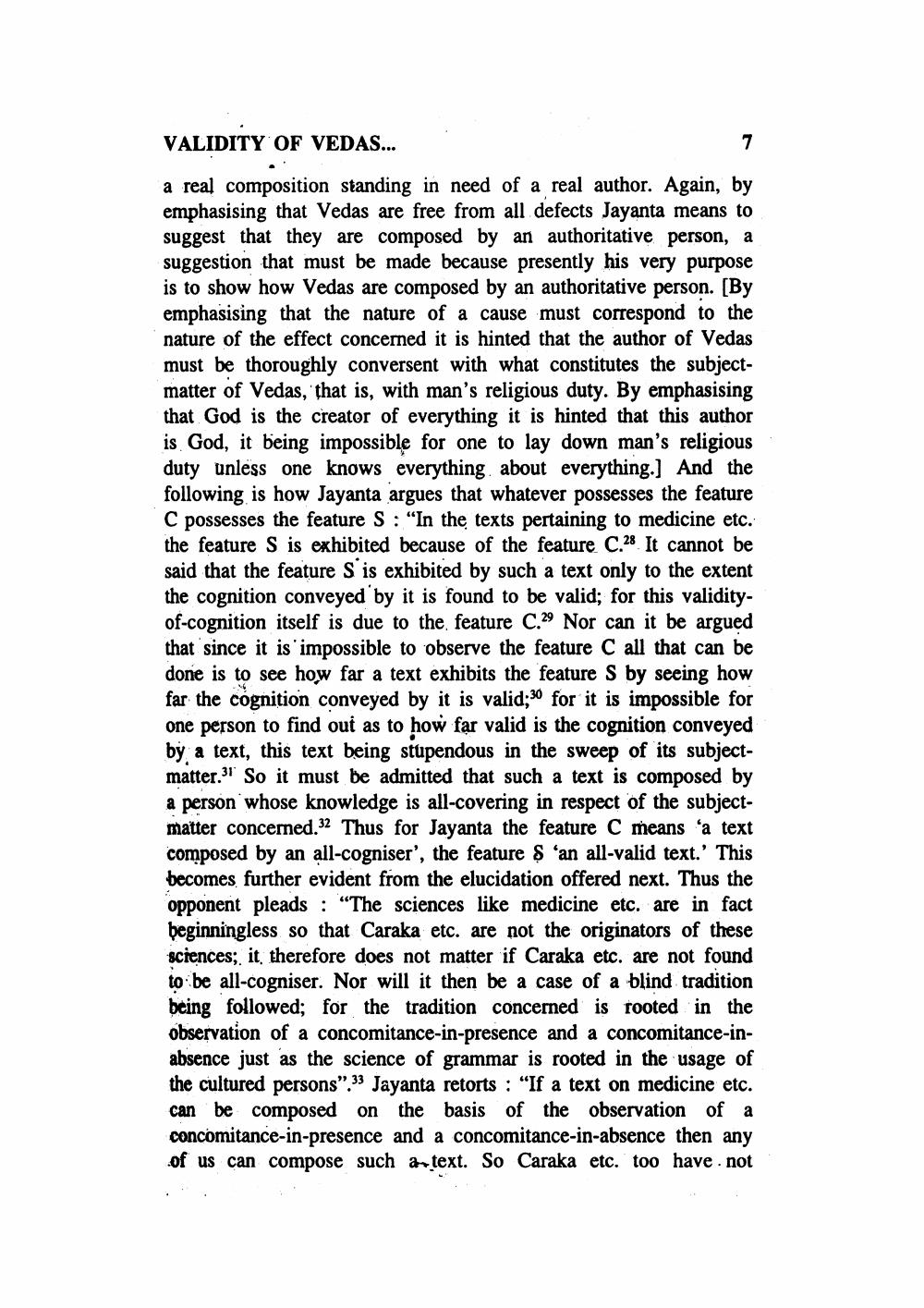________________
VALIDITY OF VEDAS...
a real composition standing in need of a real author. Again, by emphasising that Vedas are free from all defects Jayanta means to suggest that they are composed by an authoritative person, a suggestion that must be made because presently his very purpose is to show how Vedas are composed by an authoritative person. [By emphasising that the nature of a cause must correspond to the nature of the effect concerned it is hinted that the author of Vedas must be thoroughly conversent with what constitutes the subjectmatter of Vedas, that is, with man's religious duty. By emphasising that God is the creator of everything it is hinted that this author is God, it being impossible for one to lay down man's religious duty unless one knows everything about everything.) And the following is how Jayanta argues that whatever possesses the feature C possesses the feature S : “In the texts pertaining to medicine etc. the feature S is exhibited because of the feature C.28 It cannot be said that the feature S is exhibited by such a text only to the extent the cognition conveyed by it is found to be valid; for this validityof-cognition itself is due to the feature C.29 Nor can it be argued that since it is impossible to observe the feature C all that can be done is to see how far a text exhibits the feature S by seeing how far the cognition conveyed by it is valid; 30 for it is impossible for one person to find out as to how far valid is the cognition conveyed by a text, this text being stupendous in the sweep of its subjectmatter." So it must be admitted that such a text is composed by a person whose knowledge is all-covering in respect of the subjectmatter concerned. 32 Thus for Jayanta the feature C means 'a text composed by an all-cogniser', the feature $ 'an all-valid text.' This becomes further evident from the elucidation offered next. Thus the opponent pleads: "The sciences like medicine etc. are in fact beginningless so that Caraka etc. are not the originators of these sciences; it therefore does not matter if Caraka etc. are not found to be all-cogniser. Nor will it then be a case of a blind tradition being followed; for the tradition concerned is rooted in the observation of a concomitance-in-presence and a concomitance-inabsence just as the science of grammar is rooted in the usage of the cultured persons".33 Jayanta retorts : "If a text on medicine etc. can be composed on the basis of the observation of a concomitance-in-presence and a concomitance-in-absence then any of us can compose such a text. So Caraka etc. too have not




